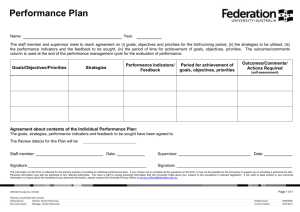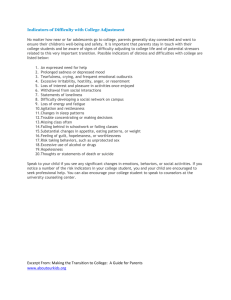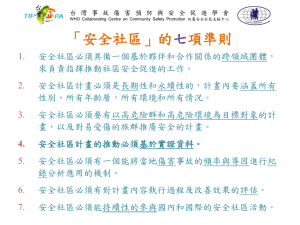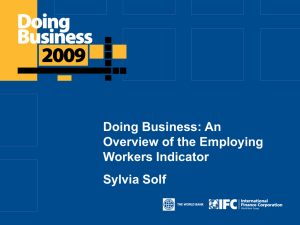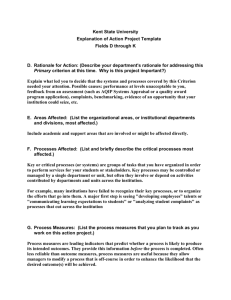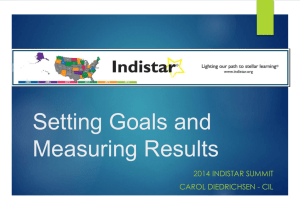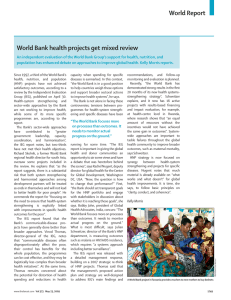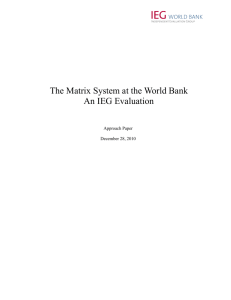Title - Doing Business
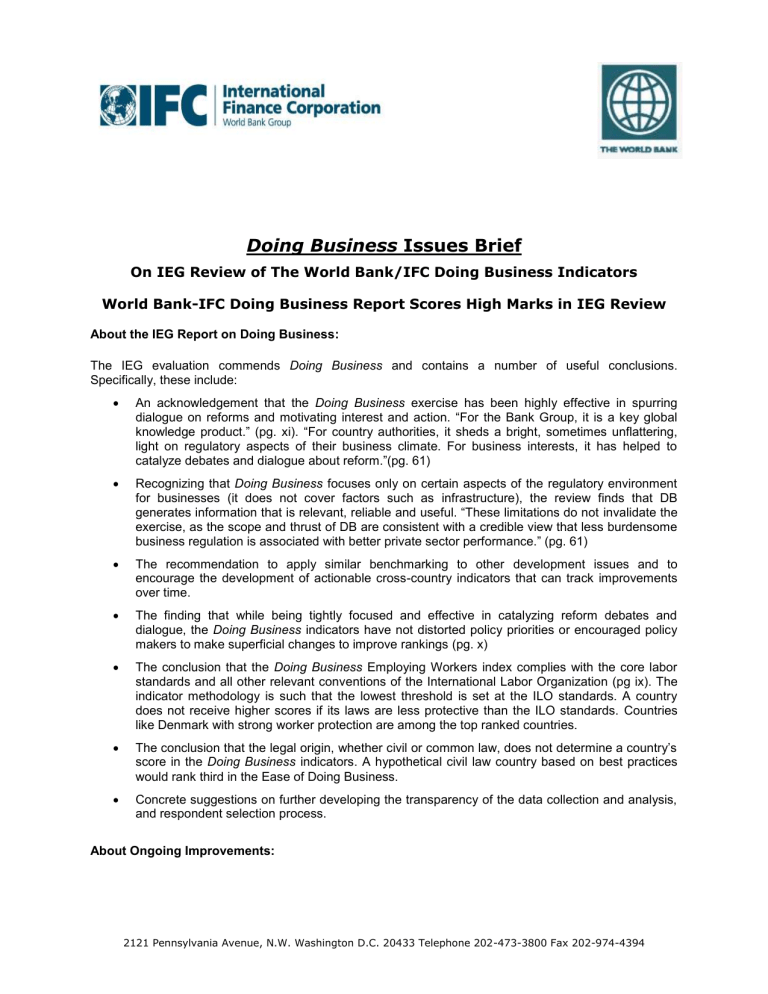
Doing Business Issues Brief
On IEG Review of The World Bank/IFC Doing Business Indicators
World Bank-IFC Doing Business Report Scores High Marks in IEG Review
About the IEG Report on Doing Business:
The IEG evaluation commends Doing Business and contains a number of useful conclusions.
Specifically, these include:
An acknowledgement that the Doing Business exercise has been highly effective in spurring dialogue on reforms and motivating interest and action. “For the Bank Group, it is a key global knowledge product.” (pg. xi). “For country authorities, it sheds a bright, sometimes unflattering, light on regulatory aspects of their business climate. For business interests, it has helped to catalyze debates and dialogue about reform.”(pg. 61)
Recognizing that Doing Business focuses only on certain aspects of the regulatory environment for businesses (it does not cover factors such as infrastructure), the review finds that DB generates information that is relevant, reliable and useful. “These limitations do not invalidate the exercise, as the scope and thrust of DB are consistent with a credible view that less burdensome business regulation is associated with better private sector performance.” (pg. 61)
The recommendation to apply similar benchmarking to other development issues and to encourage the development of actionable cross-country indicators that can track improvements over time.
The finding that while being tightly focused and effective in catalyzing reform debates and dialogue, the Doing Business indicators have not distorted policy priorities or encouraged policy makers to make superficial changes to improve rankings (pg. x)
The conclusion that the Doing Business Employing Workers index complies with the core labor standards and all other relevant conventions of the International Labor Organization (pg ix). The indicator methodology is such that the lowest threshold is set at the ILO standards. A country does not receive higher scores if its laws are less protective than the ILO standards. Countries like Denmark with strong worker protection are among the top ranked countries.
The conclusion that the legal origin, whether civil or common law, does not determine a country’s score in the Doing Business indicators. A hypothetical civil law country based on best practices would rank third in the Ease of Doing Business.
Concrete suggestions on further developing the transparency of the data collection and analysis, and respondent selection process.
About Ongoing Improvements:
2121 Pennsylvania Avenue, N.W. Washington D.C. 20433 Telephone 202-473-3800 Fax 202-974-4394
The Doing Business team welcomes IEG ’s recommendations on expanding survey respondents, data transparency, and for selecting and piloting new indicators. Some recommendations, such as having 20% or 1000 extra respondents for Doing Business 2009, have already been implemented.
Doing Business is today the most transparent exercise in data collection and disclosure of its kind. Full data, methodology and information on data revisions are published on the internet.
Doing Business follows the practice of other data providers and makes available backcalculated data series corrected for errors and methodology changes.
About Disputed Findings:
The IEG evaluation however contains some discussion and conclusions which reflect a misunderstanding of the objective and approach of Doing Business . Notably:
Paying Taxes Indicator.
The IEG evaluation recommends revising the paying taxes indicator to include only measures of administrative burden, and excluding taxes and other mandatory payments to government.
This recommendation is not consistent with another important recommendation in the evaluation on the use of the other World Bank analyses to determine the priorities for regulatory reform. In the World Bank Enterprise Surveys
(www.enterprisesurveys.org), for example, tax rates are considered a top obstacle in twice as many countries as tax administration. Doing Business does not set out to measure overall fiscal policy of a country, but records the time and cost related to paying taxes and mandatory contributions from the perspective of a local SME.
Level of regulation.
The IEG review states that Doing Business presumes less regulation is always better. In fact, Doing Business is premised on the idea that economic activity requires good rules. Doing Business rewards countries for having stricter investor and property rights protection (i.e. more regulation), making existing regulation more efficient (and compliance easier) and reducing bureaucracy. It does not assume that less regulation is better. Six of the ten indicators reward countries for having more regulation or a simplified way of implementing existing regulation. Countries are ranked based on the efficiency and strength of implementation of their regulation, not the elimination of it. In fact, top reformers in DB07 implemented stricter regulations (for example, Mexico, China and Tanzania) or simplified their implementation (for example, Romania, Croatia and Guatemala). The top 10 countries in the ease of doing business are Singapore, New Zealand, United States, Hong Kong, Denmark, United Kingdom, Canada,
Ireland, Australia and Iceland —all countries with robust regulatory environments.
About the Doing Business Project:
The Doing Business indicators were developed by the World Bank/IFC to enable policymakers and researchers to investigate and understand better the role of regulation in private sector development. Doing Business uses a “time and motion” approach, factually based on laws and regulations actually in force, to understand how a domestic entrepreneur with a small or medium sized company must interact with national and local government to start and run his / her business. Annual reports present 10 indicators of business regulation that track the time and cost to meet government requirements in business start-up, operation, trade, taxation, and closure.
The indicators are aggregated into an overall ranking, comparing ease of doing business across
2121 Pennsylvania Avenue, N.W. Washington D.C. 20433 Telephone 202-473-3800 Fax 202-974-4394
178 economies. The rankings do not reflect such areas as macroeconomic policy, quality of infrastructure, currency volatility, investor perceptions, or crime rates.
The Doing Business methodology helps governments identify specific problems and design reforms. Since 2003 when the first report was published, Doing Business has contributed to around 200 reforms around the world.
The Doing Business data collection process is transparent and easily replicable, allowing broad country coverage, annual updates, and ready extension to new locations. The project is based on the efforts of more than 5,000 local experts – business consultants, lawyers, accountants, government officials, and leading academics around the world, who provide methodological support and review. The data, methodology, background papers and datasets and the names of contributors are publicly available online at www.doingbusiness.org.
Reform impact examples: o Georgia has been a top Doing Business reformer for 3 years in a row. Georgia now has 15 registered businesses per 100 people – the same as Malaysia and more than Singapore and
Hong Kong (China). o In Egypt, fees for registering property were cut and as a result, with more registrations and less evasion, government revenue from title registration jumped by nearly 40% in the six months after reform. o Cutting the time for business startup in Mexico increased the number of registered businesses by 6%, employment rose by 2.6%, and prices fell by 1% because of increased competition from new entrants. o In Portugal in 2005 it took 11 procedures and 78 days to start a business —slower than in the
Democratic Republic of Congo. An entrepreneur needed 20 forms and documents, more than in any other European Union country. In the space of four months a new On the Spot Firm, a one-stop shop for creating a company, was made operational. Portugal is now one of the easiest countries to start a business, taking only 7 procedures, 7 days. On the Spot Firm reduced the total waiting time by 230,000 days in a year. This generated 19,500 new jobs and more than €93 million in investment.
Other External Validation of the Doing Business Project:
Six of the Doing Business project’s background papers have been published in top-10 academic journals.
Michael Porter recently called the Doing Business study a “remarkably important input” for the
Global Competitiveness Report he founded.
An external evaluation of the World Bank’s research, commissioned by then World Bank Chief
Economist Francois Bourgignon in 2006, found with regard to Doing Business that: “overall implementation and execution of data collection was very carefully conducted and has undergone several refinements and improvements. Moreover by engaging a cadre of first rate academics the
World Bank team ensured that the data collection would be guided by the latest theory and empirical research in economics and finance.”
2121 Pennsylvania Avenue, N.W. Washington D.C. 20433 Telephone 202-473-3800 Fax 202-974-4394
Doing Business indicators are correlated with other leading indices on the business environment
– notably the OECD’s “ Indicators of Product Market Regulation ,” World Economic Forum’s The
Global Competitiveness Index , and IMD’s World Competitive Yearbook.
Commenting on the Doing Business project Dr Mahmoud Mohieldin, Egypt’s Minister of
Investment, and Doing Business 2008 top reformer said: “What I like about Doing Business basically is that it creates a forum for exchanging knowledge. It’s no exaggeration when I say I checked the top ten in every indicator and we just asked them “what did you do”? If there is any advantage to starting late in anything, it’s that you can learn from others. And we were pleased that some friends from African and Arab countries asked us “how did you manage to do the one stop shop? How did you manage to do the reforms in your customs? How did you manage to introduce the credit bureau system in that fast track approach? I think it’s very much a two way street.” June 4, 2008.
Commerce Minister Luis Guillermo Plata, Colombia, said that “Reform is not like following a cake recipe. It's not enough to know the ingredients and how other cooks have mixed them up. But it certainly helps to know what cakes other reformers have baked. I read Doing Business because it provides information on what reforms happened where, and what effects they had.” June 4 2008.
Minister of Economic Development, Ekaterina Sharashidze, Georgia said “We have organized our reform agenda around the ten topics in doing business. Of course, we have broader reforms too. But even there it is useful to follow simple measures and this is what Doing Business has taught us.” June 4, 2008.
Bert Koenders, Minister for Development Cooperation, The Netherlands: “The 2008 report ‘ Doing
Business ’ fundamentally is about change and reform … The report gives the reader a view on the pace and range of reforms to ease doing business .. It also shows that business friendliness and strong social protection can go hand-in-hand, as in Denmark ... I welcome the increased sophistication of the Doing Business Report. It is unique to have quantitative indicators on business regulation and the protection of property rights that can be compared across 178 economies – from Afghanistan to Zimbabwe – and over time.”
For more information, please contact:
In Washington DC
Maria Alexandra Velez Henao
Phone: +1 (202) 458 8789
Email: mvelezhenao@ifc.org
2121 Pennsylvania Avenue, N.W. Washington D.C. 20433 Telephone 202-473-3800 Fax 202-974-4394

